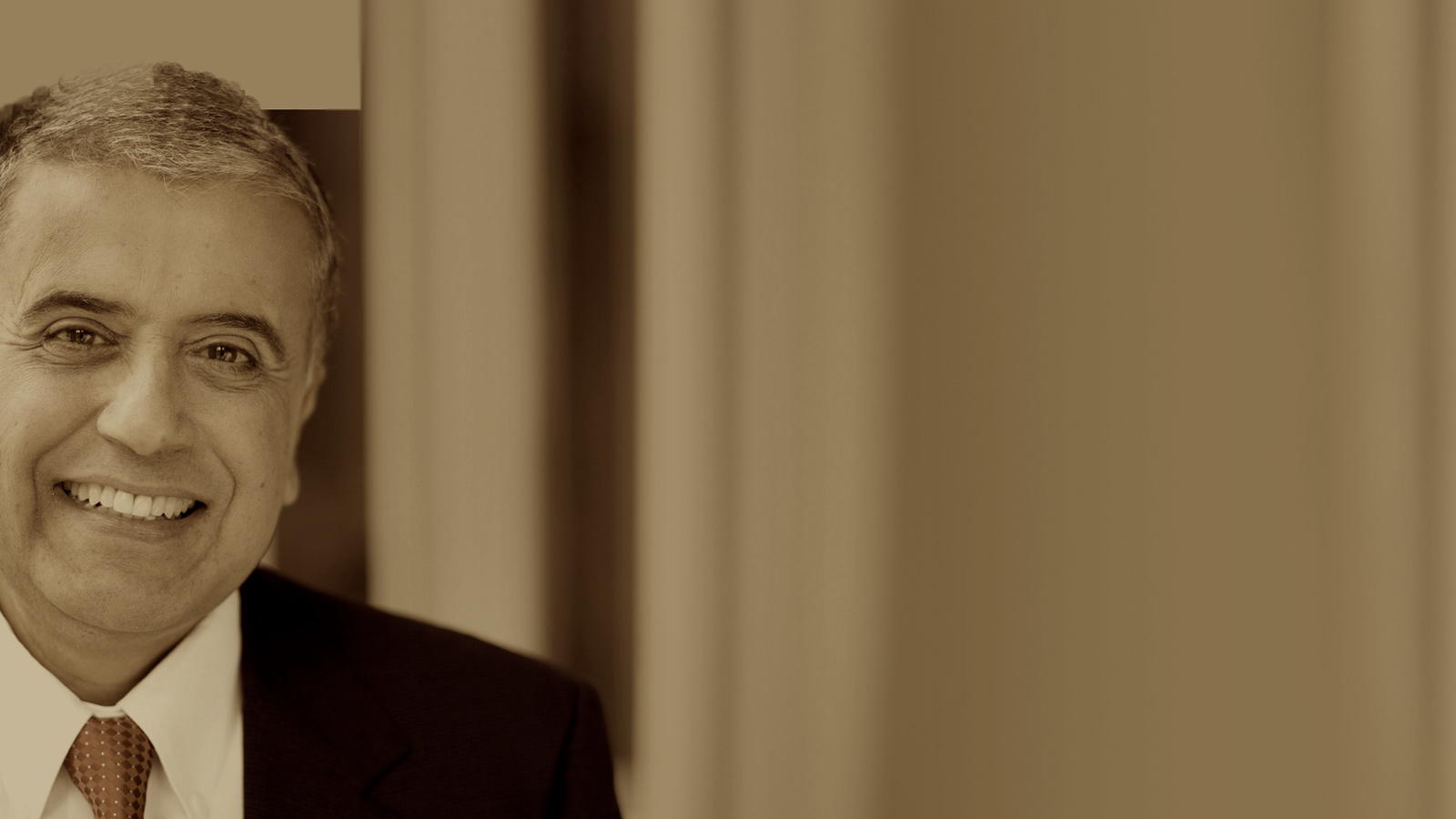Winner of the 2012 PM360 Trailblazer Award in Lifetime Achievement, Fred Hassan might be called a living legend in the corporate world. Now, with his new book, Reinvent, A Leader’s Playbook for Serial Success, people from the pharma world can learn how he achieved six corporate turnarounds. PM360 spoke to Fred about his book, the ABCs of corporate success, and the joy he’s received from helping many people and companies transform before his eyes. And where does it all spring from? A positive attitude and learning that you can achieve far more than you know.
PM360: Fred, you’ve had a long and illustrious career path, and you’re considered throughout corporate America as well as worldwide to be a transformer of companies from strugglers to successes. How did you start down this path of leadership?
Fred Hassan: Perhaps the best opportunity I got was my first job out of college with a start-up. This was in a fertilizer company in Pakistan at a time when the fertilizer we were selling was revolutionizing agriculture by getting the yields to go up dramatically.
Farmers who were poor started to become part of the middle class. I would say that taught me the power of mission. If you can get people to feel they’re collectively doing something meaningful, it really is a very powerful force—a lot more powerful than saying we’re going to grow EPS 15% a year.
Later on after I did my MBA, I went to pharmaceuticals. Here again, mission was important to me. This was something that was going to be very good for me because with pharmaceuticals one can do good things with new medicines. I learned very quickly that the formula for success is really very simple. It’s always about people. If you can get them focused on a sense of mission, you can do a lot of good things.
Wonderful. So Dr. Ram Charan, in his introduction to your recently published book, Reinvent, talks about your approach as the ABC advantage, which is your focus on corporate attitude, behavior and culture—a prime factor in your repeated corporate transformation. How did you develop this approach?
I probably saw it intuitively for quite a while. But when I really realized the importance of this, I was working in Lincoln, NE in a division of Sandoz, which is now Novartis. The operating company was called Dorsey Laboratories and at that time, I was there as Head of Sales and Marketing.
Dorsey was a very hungry company. It had hardly any products that were very scientific, but it had a lot of products that needed to be sold through relationship selling—so we needed something that could not be cured only through research and development.
The power of attitude, the power of behavior and the power of culture became very clear at that point. If you don’t have a lot to work with, and you’re in a hungry situation, those three things make you different and better with customers because they sense you as being different and better.
If customers are feeling a sense of relationship with you, they will give you their business. So in the case of Dorsey we finally got a good product—an antihistamine called Tavist—in 1978. Because we had this hungry, positive culture, we were able to make the product a big success at a time when the larger company, sister company Sandoz, had decided they couldn’t launch it. So that’s an example of ABC really at work, and Tavist became a big success.
One of your recent responsibilities was chairman and independent director at Avon, a company that, as we know, has endured some ongoing problems. How did you intend to enact positive transformation at Avon?
The most important thing is to bring in a good CEO, and I was very fortunate that I, along with my colleagues in the search committee, were able to reach inside the pharmaceutical industry and get first-class executive, Sherry McCoy. She was Vice Chairman at Johnson & Johnson, and she had turned the pharmaceutical business there. So Avon needed someone who had done turnarounds before, and Sherry clearly was a very accomplished executive. Turnarounds do take time. And this one is also going to take time.
You’re Chairman at Bausch + Lomb and Managing Director at Warburg Pincus. How do you prioritize your time to satisfy the demands for your attention?
The key is to prioritize daily on both the urgent and the important projects and to make sure that you get to spend your time on meaningful things for that day. It’s probably better to find three or four things and do those well than to try to take on everything all at once.
At Bausch + Lomb, I’ve been very fortunate to have a very strong Chief Executive Officer in Brent Saunders. That makes my job a lot easier—having a competent CEO.
In Reinvent, you mentioned that your company turnarounds have always been team efforts, which leads me to ask what led you to publish at this point in time?
I was really under a lot of pressure from friends to do this because they felt that a lot of people could learn from my experiences. It’s very unusual to have six turnarounds in a serial manner. They wanted to see the common threads here that could help people. If you have six turnarounds, then you start to see some common threads. But overall it’s my way of giving something back because I’ve had a good run with my career, and I think I owe it to a lot of people to hear from me.
Let’s talk a bit more about reinvention with regard to where you have recently been. What opportunities did you see for Avon?
If you go back to the early years of Avon, that was the ultimate relationship company, and where it’s properly applied in big countries such as Brazil or Mexico, it worked extremely well. Where it doesn’t seem to work well is in the changing situation in the United States. Now the company has to find ways to succeed in mature markets in a different way. Avon is undergoing evolution, especially in the use of digital as a way to enhance its underlying business model. That is an opportunity for Avon.
What are the rewards you’ve found from mentoring personal and professional successes in others’ lives?
I feel very proud of all the good people who have done well. In my book I mention well-known CEOs such as Dan Vasella at Novartis and Bob Essner at Wyeth. There are many, many successful CEOs who I’ve had a chance to work with. But the thing that I find very rewarding is to see people expand beyond what they thought they were going to be able to do.
For me this is something that feels good, so I try very hard to do it. It’s a bit of a selfish thing because it makes me feel good, but in the process if I can make other people do well, then that’s good. I will say the takeaway really is that people should believe in themselves, and that, in fact, they can do a lot more than what they could’ve imagined if they really go after it. And it always begins with attitude.






